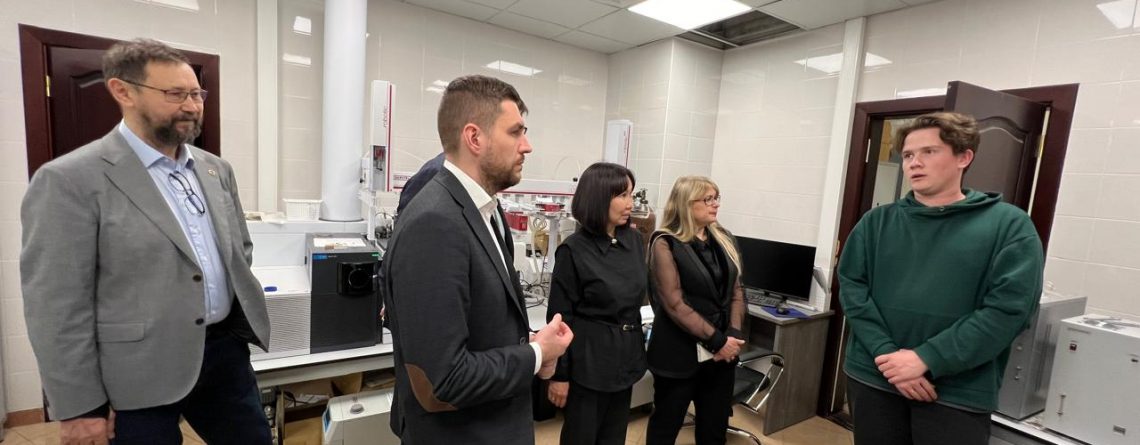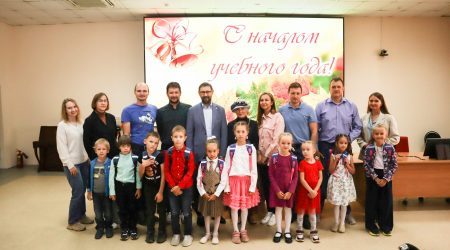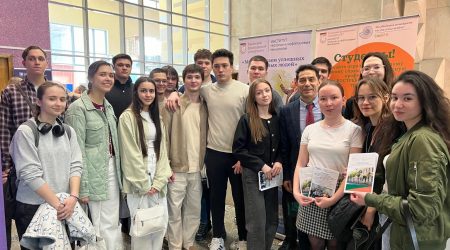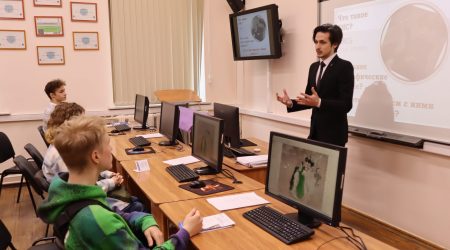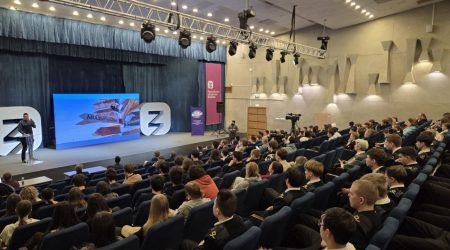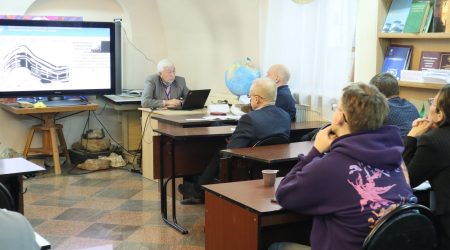SocioCenter experts say Institute’s research is ahead of time
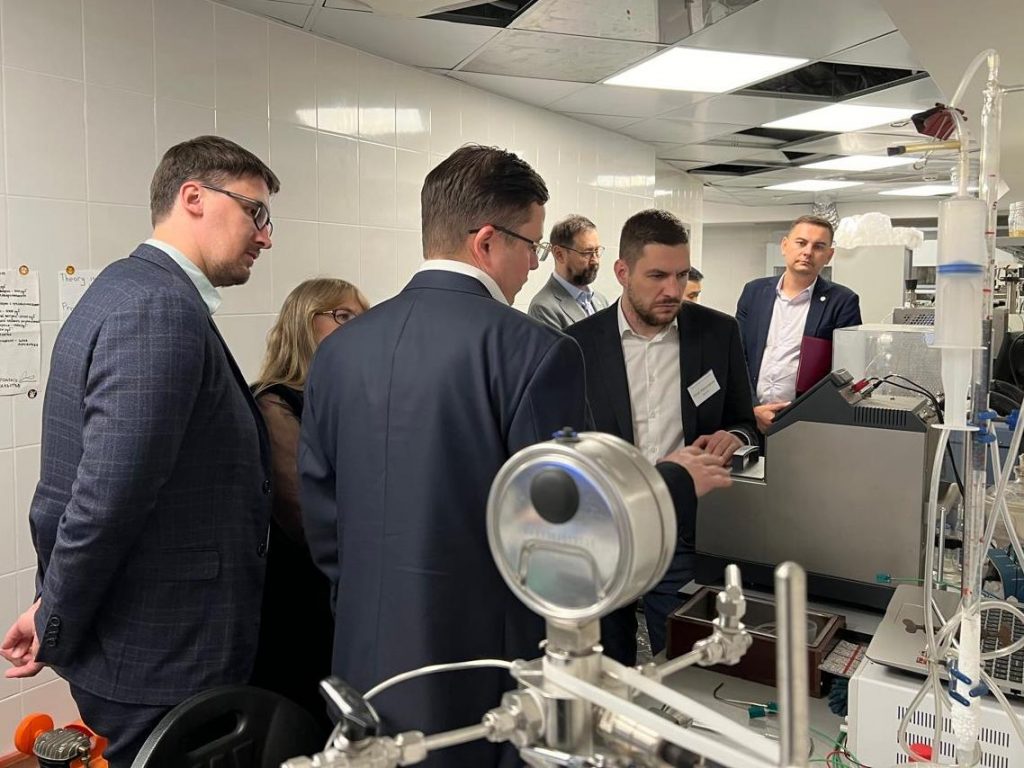
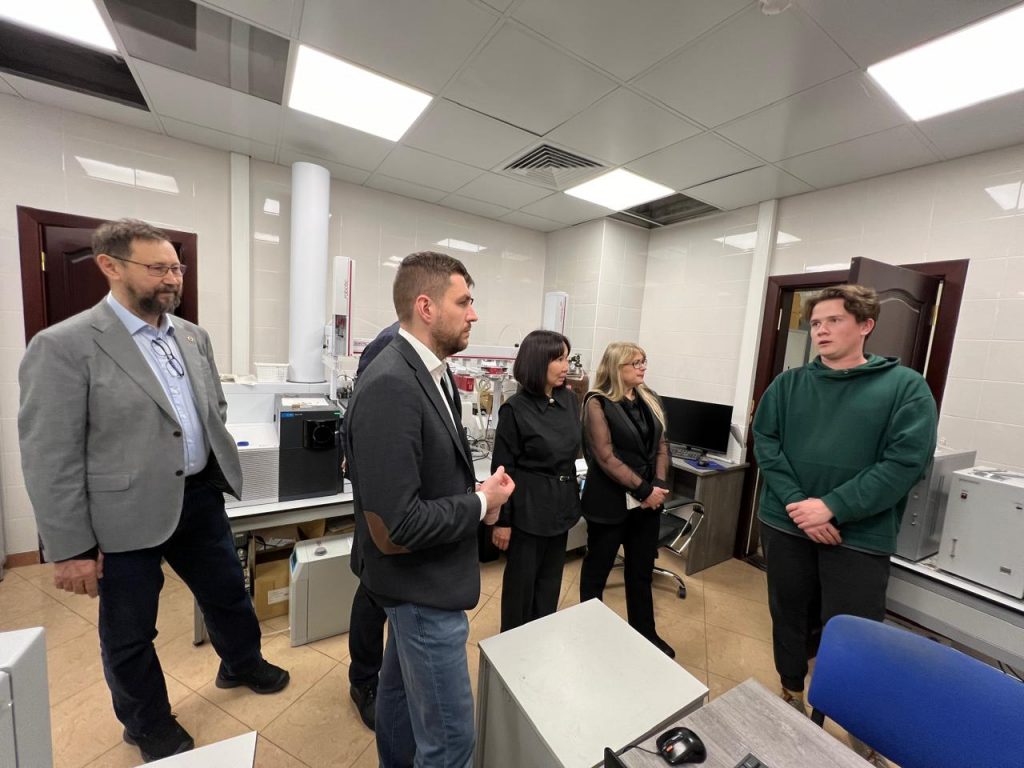
During a cross-university review of Kazan Federal University, experts from the SocioCenter, the operator of the largest state development programs in science and higher education in the Russian Federation, visited the Institute of Geology and Petroleum Technologies.
The cross-university review is being conducted at the initiative of the Russian Ministry Science and Higher Education to ensure an independent and objective assessment of the implementation of development programs at universities participating in the Priority 2030 program.
Over the course of two days, October 27 and 28, the experts, together with KFU staff, worked to analyze and transform the university’s strategic goals.
The SocioCenter expert group that met with Vice-Rector for Earth Sciences Danis Nurgaliev and then toured the Institute’s laboratory group with him, included Denis Gulin, Vice-Rector for Academic and Methodological Work at Ufa State Petroleum Technological University; Erzhena Imeskenova, Vice-Rector for Academic and Methodological Work, Youth Policy, and Digitization at the Buryat State Agricultural Academy; Natalia Kireeva, Advisor to the Rector’s Office of the Ural State Mining University; and Iskhak Farkhutdinov, Academic Secretary of the Vernadsky State Geological Museum of the Russian Academy of Sciences.
During the meeting, Dr Nurgaliev discussed the educational and scientific activities of the Institute, its collaboration with industrial partners, and the CdoGEO – Center for Advanced Training. Mikhail Varfolomeev, Director of the University’s Small-Tonnage Chemical Technology Park, briefed the guests on the Institute’s cutting-edge scientific developments in the oil and gas sector.
“The research of the Institute of Geology and Petroleum Technologies is very advanced,” noted Iskhak Farkhutdinov after the visit. “It’s important that fundamental scientific research has an applied aspect.”
He also said he was pleasantly surprised by the large number of industrial partners at the Institute.
“The institute has great potential—many young researchers are working here, and are very interested in their work (you can see it on their faces). It’s very impressive that you’ve managed to assemble such an amazing team! And how did they manage to create laboratories in 2014 that are state-of-the-art in 2025? That’s truly remarkable,” shared Natalia Kireeva.
All the experts who visited the Institute agreed – the research here is ahead of its time.

